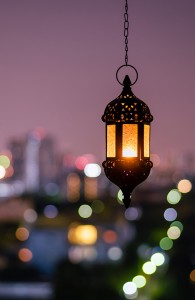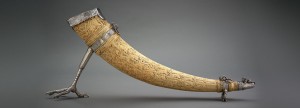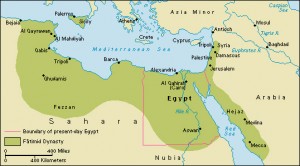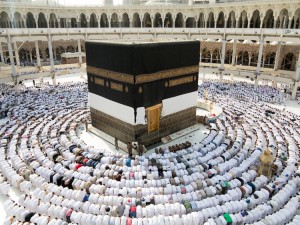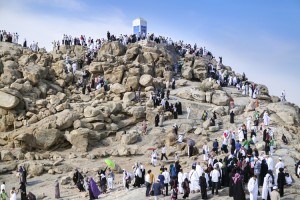Ramadan Begins
Monday, April 12th, 2021The evening of Monday, April 12, marks the beginning of Ramadan in the United States. Ramadan is an Islamic holy month when Muslims may not eat or drink from morning until night. Muslims celebrate Ramadan as the month in which the prophet Muhammad received the first of the revelations that make up the Qur’ān, the holy book of Islam.
Ramadan is the ninth month of the Islamic year. Because the Islamic calendar is based on cycles of the moon—rather than the sun, like the Western Gregorian calendar—Ramadan does not fall at the same time each year. This year, Ramadan began the evening of April 12 and ends on the evening of May 12.
The term Ramadan comes from the word Ramz, meaning great heat or burning. Ramadan is believed to cleanse a person of sins. Muslims are supposed to seek forgiveness from God during this month.
All Muslims must fast if they have reached puberty and are of sound mind. Exceptions are made for some groups, such as the sick, the elderly, pregnant women, and travelers. Those who are able, however, must make up the missed fast days at a later time. A Muslim who deliberately breaks the fast must atone by fasting for two months or feeding the poor.
Fasting begins at dawn and lasts until sunset. During this time, Muslims cannot eat food or drink beverages. The daily fast is broken by a light meal called the iftar, followed by the evening prayer.
Fasting helps Muslims to experience and apply many teachings from the Qur’ān in their daily lives. Such teachings include compassion, self-control, and spiritual reflection. Fasting also teaches Muslims to sympathize with those who are less fortunate.
The nights during Ramadan are devoted to special prayers and to recitations from the Qur’ān. During the last 10 days, some Muslims seclude themselves in a mosque to devote time to prayer and religious contemplation. A mosque is a building used for Muslim worship. The end of Ramadan is celebrated by a great festival called Īd al-Fitr.
Like so many events this year, Ramadan might look different than in years past. In many places, efforts are being made to prevent the spread of the pandemic (global outbreak) of the coronavirus disease COVID-19. Such efforts often include social distancing, meant to limit contact among people and thus the spread of germs. But, limiting the spread of germs doesn’t mean you can’t observe Ramadan!
One socially distant way to participate in Ramadan is to attend virtual prayer sessions. You can also learn about Islamic art. You might not be able to build a fantastic mosque on your kitchen table. But you can use clay to replicate craftworkers’ detailed carved wood patterns. In Islamic art, wood has been used for doors, boxes, ceilings, panels, prayer niches, and pulpits. Woodworkers often carved elaborate inserts into a plain geometrical framework of star designs. However you choose to observe, we hope you have a safe and spiritual Ramadan!

